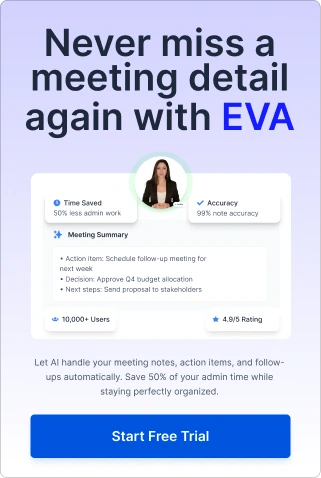Table of Contents
In today’s competitive Software-as-a-Service (SaaS) market, delivering exceptional customer onboarding and ongoing support is no longer a luxury—it’s a necessity. As businesses strive to offer seamless user experiences, many are turning to smart AI assistants to streamline these processes. Though AI chatbots have long been a staple in customer service, their evolution into advanced smart assistants is taking SaaS onboarding and support to a whole new level.
In this article, we’ll explore how smart AI assistants are transforming SaaS customer onboarding and support, going beyond traditional chatbots to deliver personalized, scalable, and efficient solutions. We’ll examine the benefits, best practices, and the technology behind this revolution—providing insights for CEOs, founders, and decision-makers looking to enhance their customer success strategies.
What Are Smart AI Assistants?
A smart AI assistant is an advanced, AI-powered tool that goes beyond simple chatbot functionality. Unlike basic chatbots, which typically respond to pre-set queries and commands, smart AI assistants use machine learning, natural language processing (NLP), and deep learning techniques to engage in more dynamic, context-aware conversations with users. They can learn from past interactions, understand user intent, and provide highly personalized and relevant responses.
For SaaS businesses, smart AI assistants can handle a wide range of tasks—from guiding users through the onboarding process to providing real-time support and troubleshooting. By offering a more intelligent, adaptive service, these smart assistants contribute to improved customer satisfaction and retention.
The Evolution from Chatbots to Smart AI Assistants
While AI chatbots have been around for years, their evolution into smart AI assistants marks a significant leap forward in the way businesses interact with customers.
- Traditional AI Chatbots: Early chatbots were limited to answering frequently asked questions (FAQs) and handling basic inquiries. They were programmed with scripted responses, which often led to frustrating customer experiences if the inquiry went beyond their predefined capabilities.
- Smart AI Assistants: Today’s smart AI assistants, powered by advanced machine learning algorithms, are designed to simulate human-like conversations and adapt to each user’s unique needs. They are capable of understanding context, processing natural language, and responding with more personalized, nuanced answers. This enables SaaS companies to provide more sophisticated and seamless customer experiences.
Smart AI Assistants in SaaS Customer Onboarding
Customer onboarding is one of the most critical stages in a SaaS customer journey. A smooth, efficient onboarding process can significantly reduce churn and increase long-term engagement. Here’s how smart AI assistants are enhancing the onboarding experience for SaaS users:
Streamlining Onboarding Journeys
Smart AI assistants can automatically guide users through the entire onboarding process, providing them with the right resources at the right time. Whether it’s creating an account, setting up preferences, or walking through a product tutorial, the AI assistant can ensure that the user progresses step-by-step, without getting overwhelmed.
For instance, if a new user signs up for a SaaS product, the smart AI assistant can initiate the onboarding sequence by:
- Introducing them to the platform’s features
- Offering product tours and tutorials
- Asking personalized questions to tailor the experience
This level of automation eliminates the need for manual intervention, reduces time spent on onboarding, and ensures a smoother experience for the user.
Personalizing User Experiences
One of the standout features of smart AI assistants is their ability to personalize interactions. Instead of delivering generic guidance, the AI can use data such as the user’s previous behavior, preferences, and goals to customize the onboarding process.
For example, if a user indicates that they are interested in using a specific feature of the SaaS product, the AI assistant can prioritize content and tutorials related to that feature, guiding them through it in detail.
Personalization helps users feel understood and valued, which significantly enhances their experience and leads to higher engagement rates.
Reducing Time-to-Value
The quicker a user can realize the value of a SaaS product, the more likely they are to become a loyal customer. Smart AI assistants reduce time-to-value by:
- Offering timely, actionable insights
- Providing instant answers to any questions
- Guiding users to the most relevant features based on their use case
This acceleration of the onboarding process leads to quicker product adoption, increased customer satisfaction, and ultimately, a lower churn rate.
The Role of Smart AI Assistants in Customer Support
While onboarding is critical, customer support is equally important in maintaining long-term customer relationships. Here’s how smart AI assistants are transforming the SaaS customer support landscape:
24/7 Availability
Smart AI assistants offer continuous availability, ensuring that customers can access support anytime, anywhere. This is especially important for SaaS businesses that operate in different time zones or serve a global audience. Unlike human agents who have limitations in terms of working hours, AI assistants can provide instant help 24/7.
This availability not only ensures that issues are resolved quickly, but it also improves customer satisfaction by giving users the freedom to seek assistance at their convenience.
Proactive Issue Resolution
Unlike traditional chatbots that typically react to customer queries, smart AI assistants can be programmed to proactively address issues before they escalate. For example, if a user encounters a potential roadblock or error while using the product, the AI assistant can detect it and offer troubleshooting steps or guidance automatically.
Additionally, these assistants can monitor user behavior, identifying patterns that may indicate a future issue, and reach out to customers to offer solutions before they even ask.
Enhanced Self-Service Options
One of the key benefits of smart AI assistants is their ability to enhance self-service options for customers. By providing users with easy access to knowledge bases, FAQs, tutorials, and other resources, AI assistants empower customers to resolve issues independently without the need to contact support.
Self-service tools not only save time but also reduce the strain on customer service teams, allowing them to focus on more complex or high-priority issues.
The Technology Behind Smart AI Assistants
While onboarding is critical, customer support is equally important in maintaining long-term customer relationships. Here’s how smart AI assistants are transforming the SaaS customer support landscape:
24/7 Availability
The advanced capabilities of smart AI assistants stem from cutting-edge technologies that enable them to understand and interact with users on a deeper level.
Some of the core technologies include:
- Natural Language Processing (NLP): NLP allows the AI assistant to interpret and understand human language in a way that’s similar to how humans communicate. This ensures more accurate and relevant responses.
- Machine Learning (ML): ML enables the AI assistant to continuously learn from user interactions, improving its responses over time and offering more personalized experiences.
- Deep Learning (DL): By using neural networks, deep learning enables the AI to understand complex patterns, making it capable of handling nuanced customer queries.
- Sentiment Analysis: This technology allows the AI assistant to gauge the emotional tone of user messages and tailor its responses accordingly, enhancing the overall user experience.
Together, these technologies empower smart AI assistants to go beyond simple customer inquiries, enabling them to offer intelligent, personalized support.
Best Practices for Implementing Smart AI Assistants in SaaS
To maximize the effectiveness of smart AI assistants in your SaaS business, consider these best practices:
- Ensure proper training and integration: Your AI assistant should be trained on a wide range of customer queries and integrated seamlessly with your CRM, knowledge base, and other support systems.
- Personalize interactions: Use customer data to tailor interactions and make the onboarding and support process more relevant.
- Monitor and optimize: Continuously track the performance of your AI assistant, adjusting its responses and capabilities as necessary to improve the customer experience.
The Future of Smart AI Assistants in SaaS
The future of smart AI assistants in SaaS looks incredibly promising. As AI continues to evolve, we can expect even more sophisticated assistants that can handle complex customer interactions, provide real-time decision-making insights, and seamlessly integrate with other business tools.
These advancements will further enhance customer onboarding and support, helping SaaS companies build stronger relationships with their users.
Conclusion
Smart AI assistants are quickly becoming an indispensable tool for SaaS businesses looking to enhance customer onboarding and support. By offering personalized, scalable, and efficient solutions, these assistants help businesses deliver a superior user experience, improve customer satisfaction, and ultimately drive growth. The key to success lies in selecting the right AI technology, integrating it effectively into your business processes, and continuously optimizing it to meet the evolving needs of your customers.
As AI technology continues to advance, the role of smart AI assistants will only become more crucial in shaping the future of SaaS customer success.
FAQ: Smart AI Assistants in SaaS Customer Onboarding & Support
Chatbots are rule-based and provide scripted responses to basic queries, while smart AI assistants use advanced machine learning and NLP to offer dynamic, personalized, and context-aware interactions.
They streamline the onboarding process by guiding users step-by-step, personalizing the experience based on user data, and reducing time-to-value for faster product adoption.
Key benefits include 24/7 availability, proactive issue resolution, scalability for handling more requests, and cost savings by automating routine tasks.
Yes, smart AI assistants can manage complex queries using machine learning and natural language understanding, providing accurate responses and escalating to human agents when necessary.
They comply with data protection laws (GDPR, CCPA), using encryption, anonymization, and secure storage practices to protect sensitive user information.
Companies like Zendesk, Intercom, HubSpot, and Freshdesk use smart AI assistants to automate support tasks, improve customer engagement, and streamline onboarding.
Key metrics include customer satisfaction (CSAT), first response time, resolution rate, user engagement, and churn rate to gauge effectiveness and optimize performance.
 Free
Free










